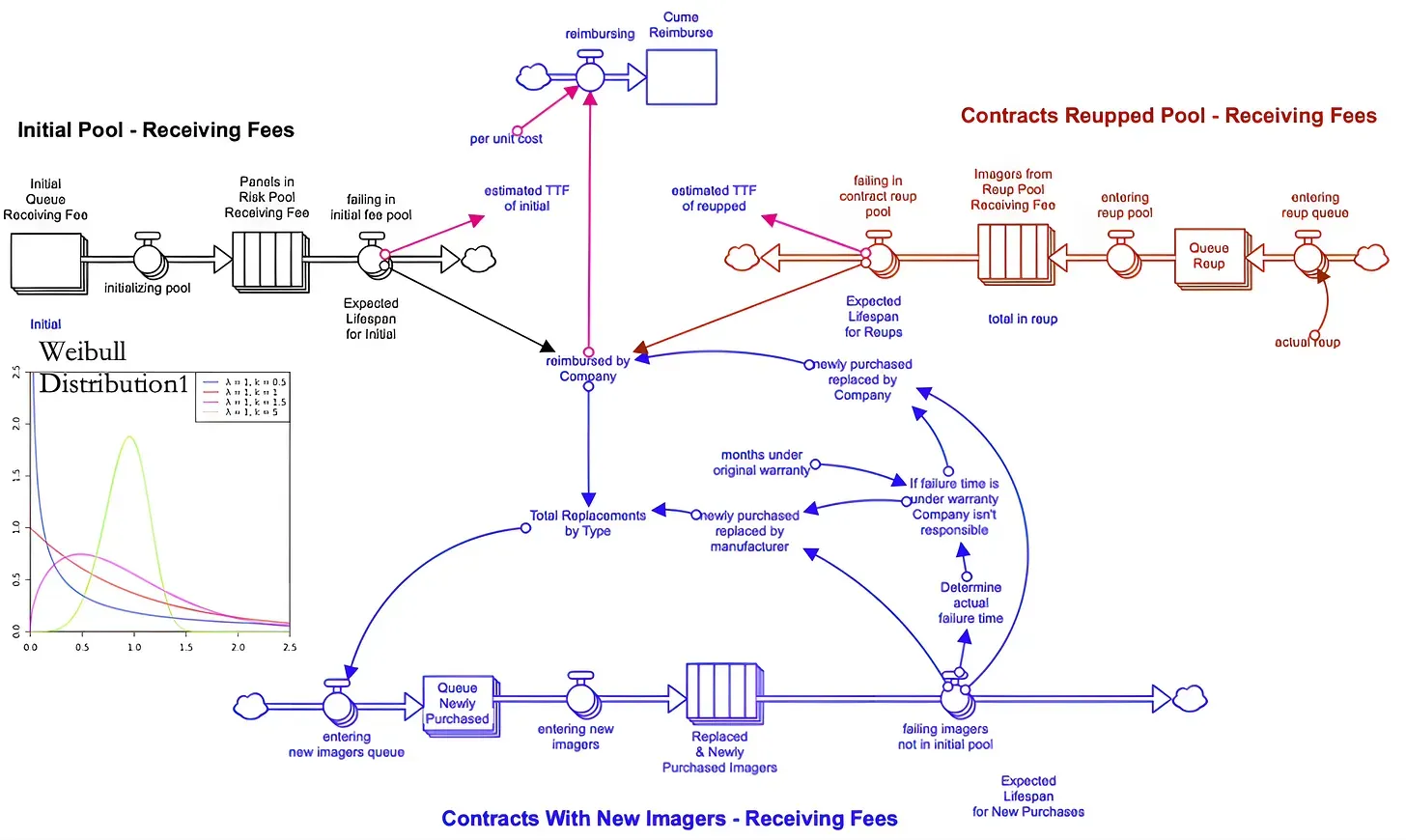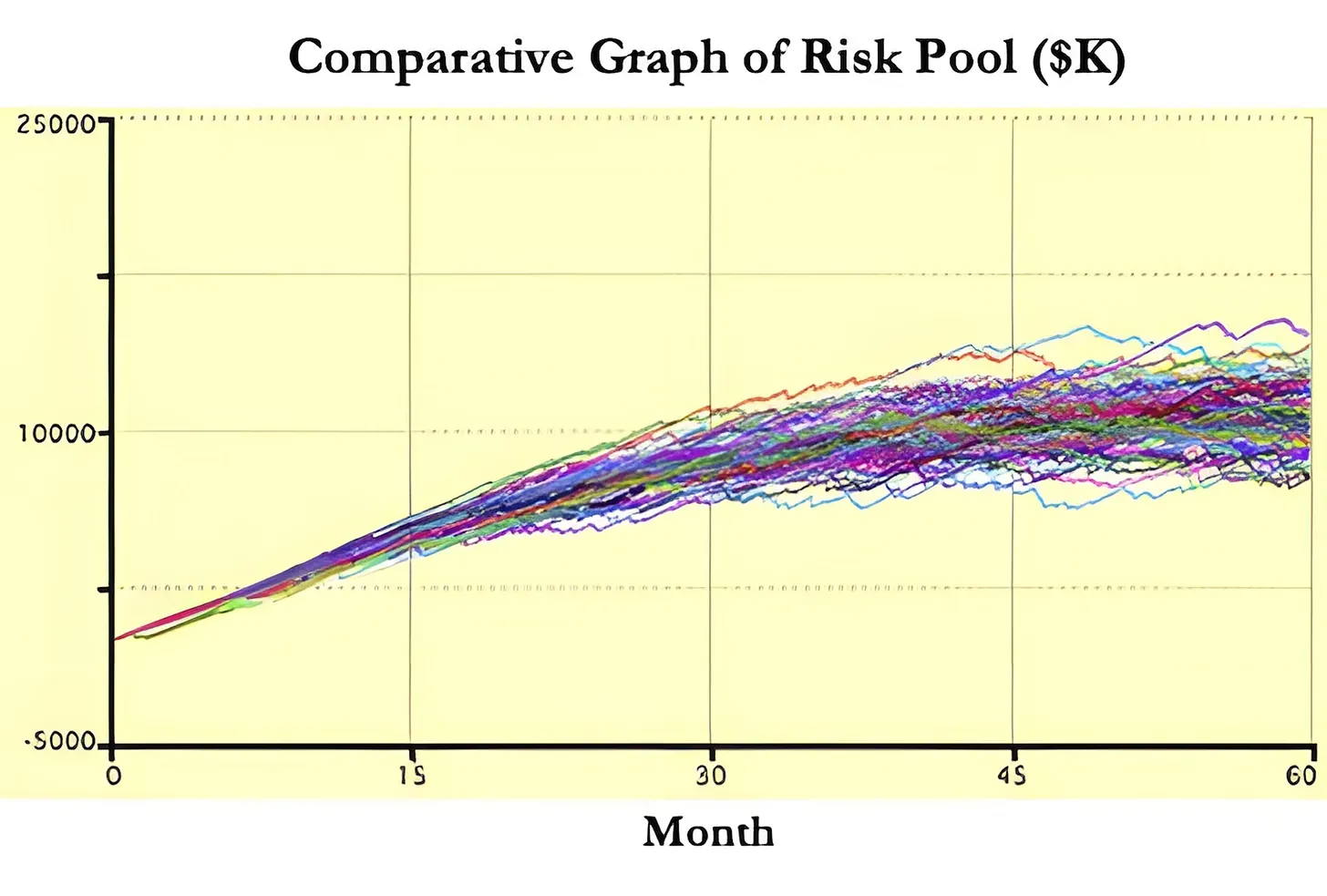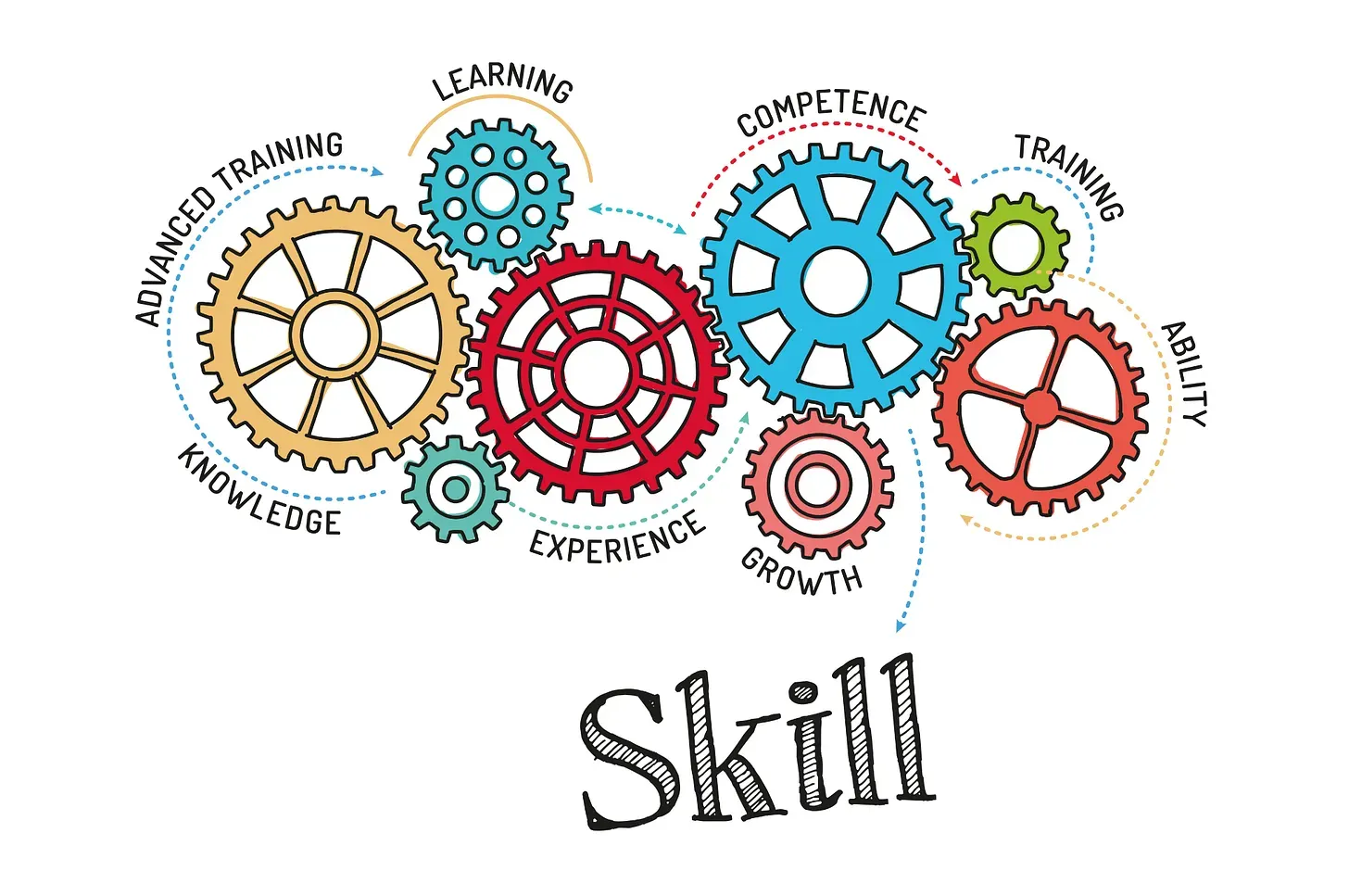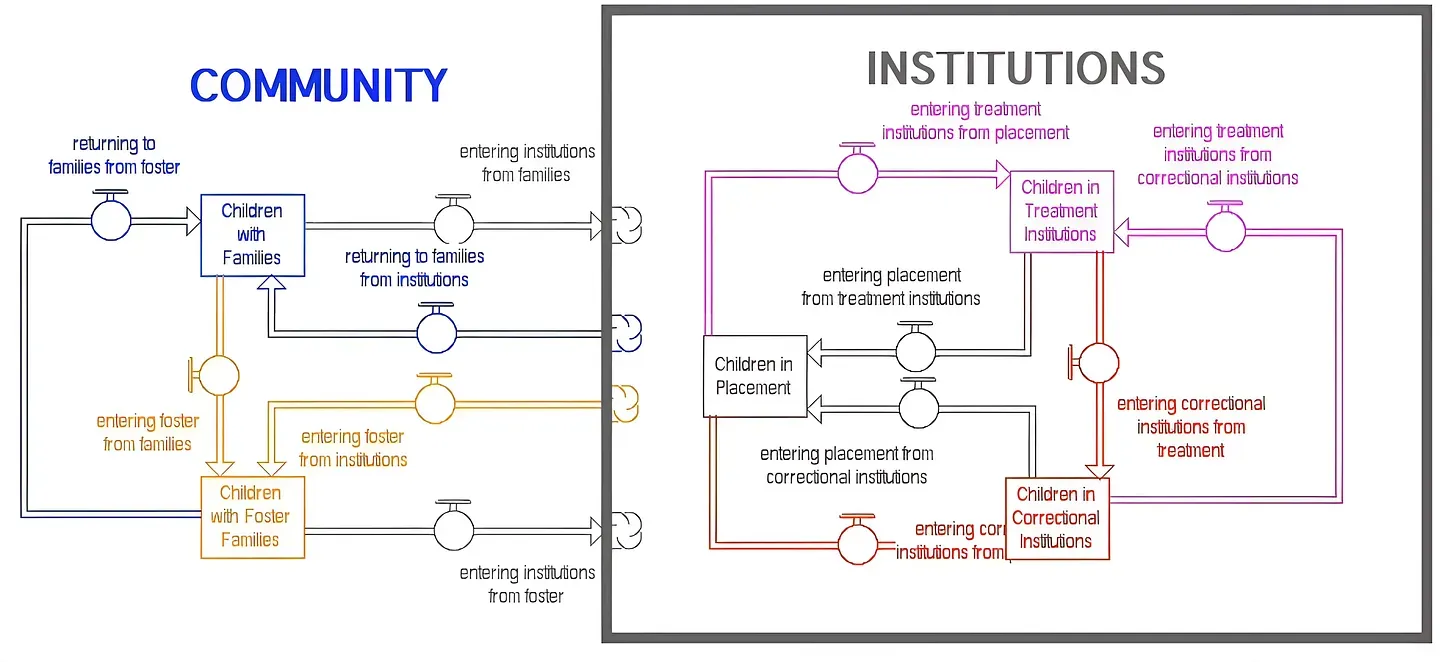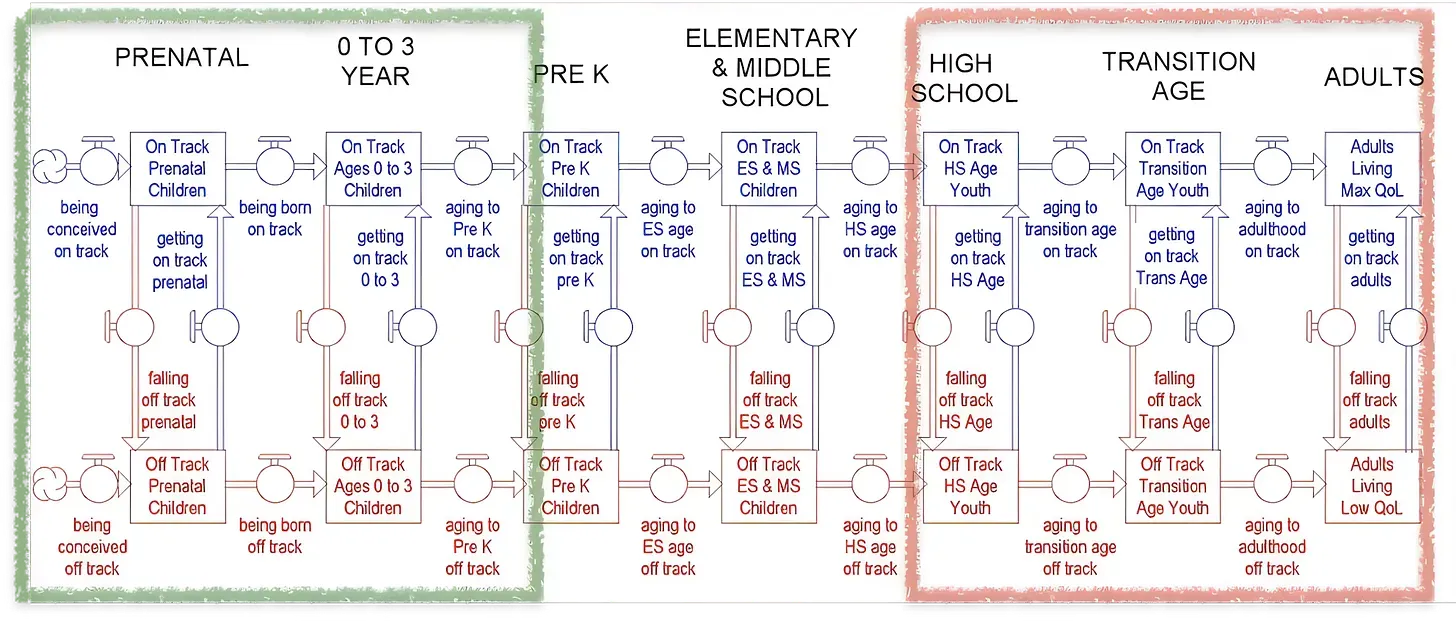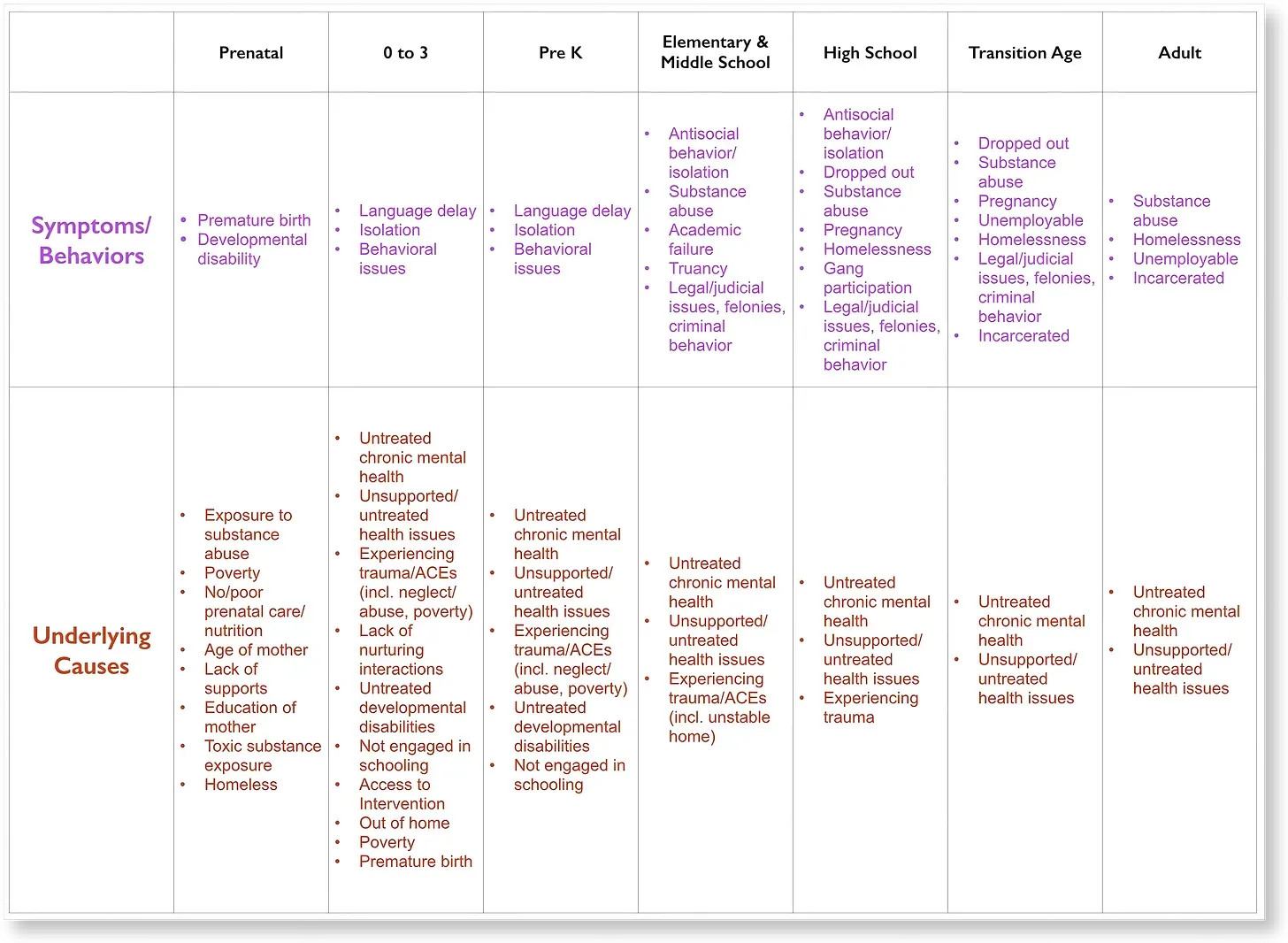🌐 Building Systemic Intelligence: A Critical Capacity to Understand Today's Complex Challenges

"Anyone who aspires to make observations about mankind should look upon the human scene as from some lofty height." — Marcus Aurelius
The recent global supply chain disruptions provide a perfect illustration of why we need systemic intelligence to address today's interconnected challenges. When COVID-19 hit, organizations responded individually - cutting production, reducing inventory, and laying off workers. While these decisions made sense from each organization's perspective, they collectively amplified system-wide disruption, leading to shortages and inflation that we're still grappling with today.
“The world is a complex, interconnected, finite, ecological-social-psychological-economic system. We treat it as if it were not, as if it were divisible, separable, simple, and infinite. Our persistent, intractable global problems arise directly from this mismatch.”
—Donella Meadows
This is where systemic intelligence (SysQ) becomes essential. Rather than viewing problems in isolation, SysQ provides tools and frameworks to understand how different parts of a system interact across organizational boundaries. It helps us see the deeper structures driving complex problems, revealing crucial time delays and feedback loops that traditional analysis often misses.
THE EXTRA VALUE OF SYSTEMIC INTELLIGENCE
Systemic intelligence adds three critical dimensions to problem-solving and strategy creation:
Shared Understanding —
SysQ provides a common language and visualization tools (like stock-and-flow mapping) that help diverse stakeholders build shared mental models of complex systems. This shared understanding is crucial for effective collaboration across organizational boundaries.
Long-term Perspective —
By making time delays and feedback loops visible, SysQ helps organizations move beyond quick fixes to develop solutions that address root causes and consider long-term implications.
Collaborative Solutions —
Instead of optimizing individual parts, SysQ encourages stakeholders to consider the health of the entire system, leading to more effective collaborative responses to complex challenges.

BUILDING SYSTEMIC INTELLIGENCE CAPACITY
For NGOs and communities looking to develop systemic intelligence, I recommend starting with these key practices:
Build Shared Maps —
Create visual representations of the system you're trying to understand. Focus on identifying key resources, flows, and feedback loops that generate current outcomes.
Focus on Physics —
Pay attention to the actual resources and constraints in your system - what I call the "physics." This helps ground discussions in reality rather than assumptions.Look for Time Delays —
Identify where significant delays exist between actions and their effects. This understanding is crucial for developing realistic implementation timelines and managing expectations.
Foster Cross-boundary Dialogue —
Create regular opportunities for stakeholders from different parts of the system to share perspectives and develop shared understanding.
MAKING SENSE OF SOCIETAL ISSUES
Through my upcoming Substack series, I'll be helping readers develop their systemic intelligence capacity by exploring real-world examples and providing practical tools for understanding complex societal issues. We'll examine cases like the supply chain disruptions, showing how systemic thinking reveals deeper patterns and more effective intervention points.
Each article will combine accessible explanations of systemic principles with practical applications to current challenges. My goal is to build a community of practitioners who can apply these tools to create more effective, sustainable solutions to our most pressing societal issues.
In today's interconnected world, success requires more than just organizational excellence - it demands systemic intelligence to understand and manage complex interdependencies. I invite you to join me on this journey of building this essential capacity together.
NAVIGATING TODAY'S COMPLEX NEWS LANDSCAPE
In an era of information overload, systemic intelligence offers valuable tools for making sense of today's rapid-fire news cycle. Rather than viewing each headline in isolation, SysQ helps us understand how different events and trends interconnect and influence each other.
For example, when analyzing current geopolitical tensions, systemic thinking reveals how economic policies, resource constraints, and social dynamics create reinforcing feedback loops that can either escalate or de-escalate conflicts. This deeper understanding helps us move beyond simplistic narratives to grasp the full complexity of global events.
Pattern Recognition —
SysQ helps identify recurring patterns in seemingly unrelated events, revealing deeper systemic structures that drive similar outcomes across different contexts.
Multiple Perspectives —
By encouraging us to consider various stakeholders' viewpoints, SysQ provides a more nuanced understanding of complex social and political issues.
Future Implications —
Understanding systemic connections helps us better anticipate potential long-term consequences of current events and policy decisions.

THE CASE FOR SYSQ JOURNALISM — WHY WE NEED A NEW APPROACH TO COVERING THE “NEWS”
The increasingly complexifying, interconnected world is inscrutable to typical approaches to news gathering, analyzing and sharing — even in those rare cases where the news is analyzed. We need an approach that moves from merely reporting the news into a systemic sense-making approach that generates insight. In short, we need to surface above the ocean of news “events”, moving from data to information to insight.
SysQ Journalism, if implemented, would be a powerful way of reporting that goes beyond just telling isolated stories. Instead, SysQ Journalism would show how different issues are connected. The main goal is to reveal the systems and structures behind the challenges we face, helping people who want to make a difference understand the bigger picture. By using a systemic intelligence approach, this type of journalism will help communities understand the root causes of problems, which can lead to better solutions. It will create more informed and engaged citizens that can solve community challenges and ultimately the urgent global issues we face. SysQ Journalism, because it is based on systemic intelligence promotes the tackling issues with a connected and holistic view.
The need for systems journalism is urgent because the world is facing many interconnected challenges, and it’s crucial to equip and empower people who can drive change. Traditional journalism often doesn’t capture the complexity of these issues, which can lead to misunderstandings and ineffective responses. Systems journalism, on the other hand, provides a complete picture and emphasizes teamwork, problem-solving, and adaptability. By giving people the tools and knowledge they need, it helps break down barriers and encourages innovative solutions, promoting essential skills for those working to bring about global change.
The importance of systems journalism is further highlighted by the Great Unraveling of the global polycrisis, which describes the breakdown of global systems due to multiple crises.1 To address these problems, it’s important to improve the skills of leaders and influencers so they can use a systemic approach in their decisions. Systems journalism is crucial in this effort as it sparks learning and change. It shows how global issues are connected, encouraging a broader way of thinking necessary to tackle the complex problems of our time and helping to create a more informed and involved society.
GLOBAL DYNAMICS — USING SYSTEMS JOURNALISM TO MAKE SENSE IN TURBULENT TIMES
In 2023, in an effort to promote systems journalism and make sense of global issues, I produced a video called Global Dynamics — Making Sense in Turbulent Times. The video includes an ecosystem map showing the interconnections between several global phenomena, including:
-
Rising authoritariansim
-
Polarization and extremism
-
Dark money influence on politics
-
Corruption
-
Cryptocurrency
-
Social media influence
-
Climate change

I will create several future posts describing the issues in the global ecosystem map — as individual and interconnected issues — to the Societal Applications section. Understanding these interconnections could help identify the levers needed to avert future crises or mitigate current and future ones.
You can watch the video here.
SUMMARY
As we face increasingly complex global challenges — from climate change to technological disruption — systemic intelligence becomes not just useful, but essential. It provides the cognitive tools we need to navigate uncertainty and work toward more effective, sustainable solutions. Systems Journalism is the vehicle for building our SysQ and insight regarding important global dynamics. We need this insight and capacity to navigate the turbulent waters of today…and tomorrow.
1 Heinberg, R. and Miller, A., Welcome to the Great Unraveling: Navigating the Polycrisis of Environmental and Social Breakdown, Post Carbon Institute, 2023





